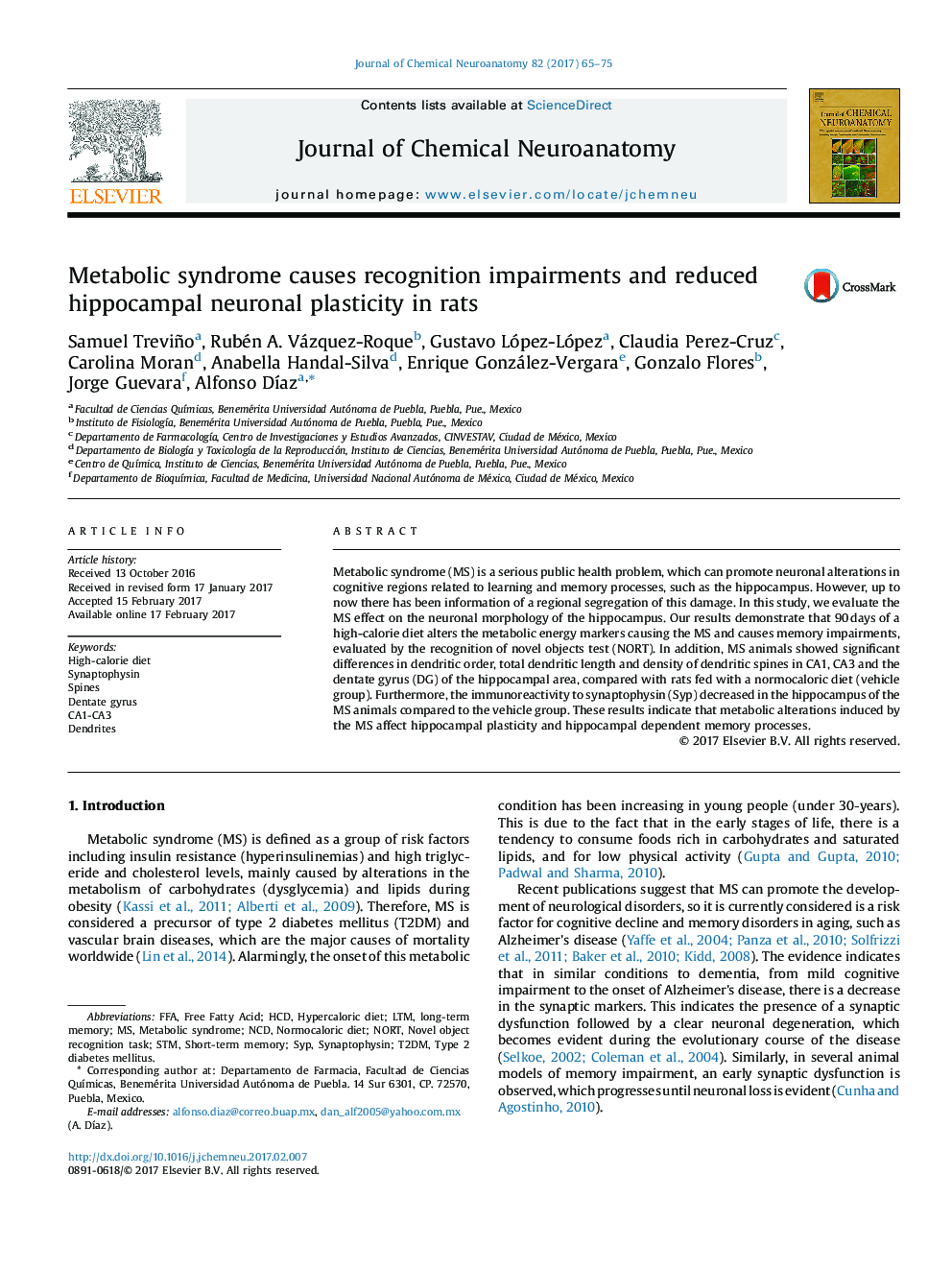| Article ID | Journal | Published Year | Pages | File Type |
|---|---|---|---|---|
| 5512667 | Journal of Chemical Neuroanatomy | 2017 | 11 Pages |
â¢Metabolic syndrome is associated with poor recognition memory.â¢Hypercaloric diet induced reduction in dendritic spines density.â¢Metabolic syndrome reduced cerebral plasticity and cognitive deficit in object recognition tasks.
Metabolic syndrome (MS) is a serious public health problem, which can promote neuronal alterations in cognitive regions related to learning and memory processes, such as the hippocampus. However, up to now there has been information of a regional segregation of this damage. In this study, we evaluate the MS effect on the neuronal morphology of the hippocampus. Our results demonstrate that 90Â days of a high-calorie diet alters the metabolic energy markers causing the MS and causes memory impairments, evaluated by the recognition of novel objects test (NORT). In addition, MS animals showed significant differences in dendritic order, total dendritic length and density of dendritic spines in CA1, CA3 and the dentate gyrus (DG) of the hippocampal area, compared with rats fed with a normocaloric diet (vehicle group). Furthermore, the immunoreactivity to synaptophysin (Syp) decreased in the hippocampus of the MS animals compared to the vehicle group. These results indicate that metabolic alterations induced by the MS affect hippocampal plasticity and hippocampal dependent memory processes.
Graphical abstractDownload high-res image (116KB)Download full-size image
